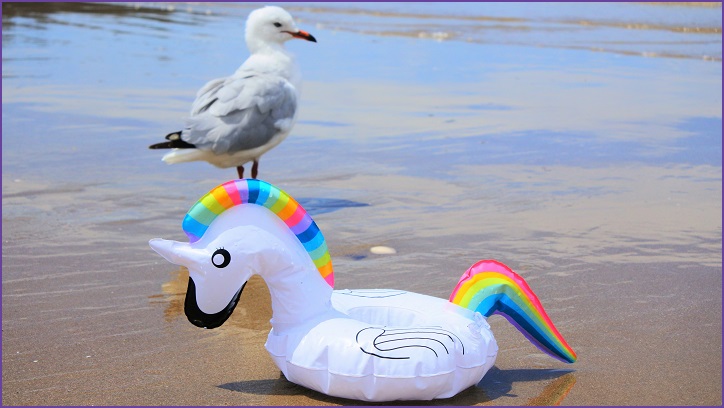There are nearly 500 unicorns in the world, but only one in Australia.
Despite the number of privately held tech start-ups valued at over $1 billion (AKA ‘unicorns’) exploding in recent years, a recent report from the Hurun Research Institute says Australia’s only unicorn is graphic design company Canva.
The report lists Melbourne-founded fintech Airwallex as Chinese.
Atlassian doesn’t make the cut because it is a publicly traded company.
Compared to China and the US – first and second on the list with a whopping 206 and 203 unicorns respectively – Australia ranks quite poorly.
Then again, so does the rest of the world.
“China and the USA dominate with over 80 per cent of the world’s known unicorns despite representing only half of the world’s GDP and a quarter of the world’s population,” said Hurun Report chief researcher, Rubert Hoogewerf.
“The rest of the world needs to wake up to creating an environment that allows unicorns to flourish.”
India ranked third with 21 unicorns, UK came in fourth place with 13, while Germany and Israel tied for fifth with seven apiece.
The report also gives an indication of which industries are currently most conducive to unicorn start-ups.
Almost one third of the 494 unicorns listed are in fintech and e-commerce, with cloud, AI, and logistics making up the top five sectors.
“These are the industries that are disrupting the world economy, initiating the Fourth Industrial Revolution, and widely considered to hold the key to the future,” Hoogewerf said.
“Not surprising that many of the world’s top young talent want to work in these sectors.”
On the other end of the scale, only a handful of AR/VR and 3D printing start-ups made the ranking list.
Why so few Aussie unicorns?
Population may be an obvious first indicator, given that the top three countries for unicorns are also the World’s three most populous.
However, even if we claimed Airwallex, Australia would sit alongside Japan, Sweden, and Singapore with two unicorns. But Sweden and Singapore’s populations combined are still less than Australia’s 25 million.
Serial entrepreneur and Commercial Director at PALO IT, Kathryn Sforcina, told Information Age she thought investors lacked confidence in Aussie start-ups.
“I do think the start-up scene here is definitely picking up, but we lose a lot of our talent offshore because our investors here are so conservative,” she said.
“We never really recovered from when the Dot Com bubble burst in that sense. And you certainly appear to need far less traction, far less team (sic), and far less tech to get invested in other countries.
“I think that that's been really challenging for the tech scene.”
A quick look at the ASX200 hints at the appetites of Australian investors.
Only 15 companies categorised as ‘information technology’ appear on the list, while ‘minerals’ and companies appear more than twice as often.
“We do produce some really strong, solid, technology, though,” Sforcina said.
“And we've proven ourselves a number of times across a broad spectrum of different types of verticals in the tech space, so I do think it will only be a matter of time before investors take notice.
“I only hope it's not so long that we miss the boat as being one of the global leaders for technology.”










